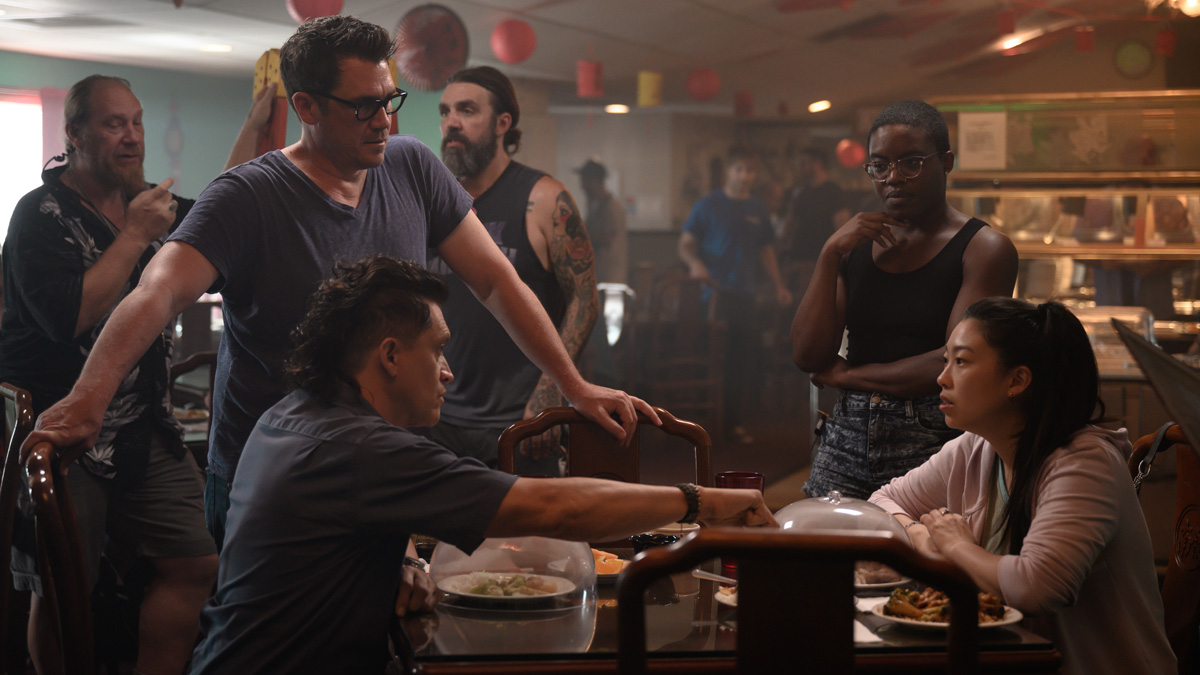Tate Taylor describes the countryside around Natchez, Miss., as varying from mile to mile. The Jackson native, now a major film director, says the small southwest Mississippi city, filled with a mix of antebellum mansions and shotgun houses, has every bit of architecture from each era from the 1700s to today preserved and available. He relied on that building stock for his 2014 James Brown biopic “Get On Up.” The woods can look like those of the Mississippi Delta, or they can look like Vietnam, he said.
“We have a film that takes place in England during World War I, and the hills and hardwoods of southwest Mississippi easily, easily adapt to look like that,” Taylor told the Mississippi Free Press during a Zoom interview in February.
Natchez has been the filming locations for at least four movies in Taylor’s growing discography since the blockbuster film “The Help” solidified his place on the Hollywood map. The Jackson native, and graduate of Jackson Prep, directed that film based on his high-school friend Kathryn Stockett’s bestselling novel.
Over time, Taylor has recognized the need and appetite for local Mississippians to get into the film industry. “Whenever I film a movie here, we’ve always let people and groups come to sets to watch us work, but then once that experience was over, there were no more experiences,” he said.
The realization led Taylor to start Film Natchez, a nonprofit organization geared toward pairing Missisippians with professionals in the film industry to pick their brains about the various fields open in the film industry from special effects to screenwriting.
“This is where we’re going to plant our flag, and I knew it didn’t matter because if people want to learn about the business they will go far and near to learn about it,” the director said.
‘The Need For This Outlet’
Film Natchez Director Devin Miranda-Weise Klugh, who is in charge of programming, said Film Natchez aims to be an organization that is plugged into the school system, which is why they work closely with Natchez High School and college students at Copiah-Lincoln Community College, The University of Southern Mississippi and Alcorn State University.
“Right now, we have one intern from Tulane (University), and we’re really trying to hit every way that a student could start a career,” Klugh told the Mississippi Free Press during the Zoom call. “Some are going to come straight from high school, some are going to do a two-year degree for hands-on-type jobs, and then some of them are going to get a four-year university degree.”
Programming is also open to adults looking for a career change and especially want to apply their prior skills to a job in the film industry, she said.
Natchez native Khallil Jenkins found out about Film Natchez through its partnership with Natchez High School’s digital media program. Klugh reached out to Jenkins’ teacher and his teacher extended the opportunity to him..
Jenkins told the Mississippi Free Press that what attracted him to the program was the opportunity to learn about the behind-the-scenes of filmmaking and how you can convey a certain topic through film. While interning, Jenkins was able to attend various workshops on different topics such as screenwriting, as well as work on projects like shooting b-roll of the city and editing the film to create a promo video for Natchez.
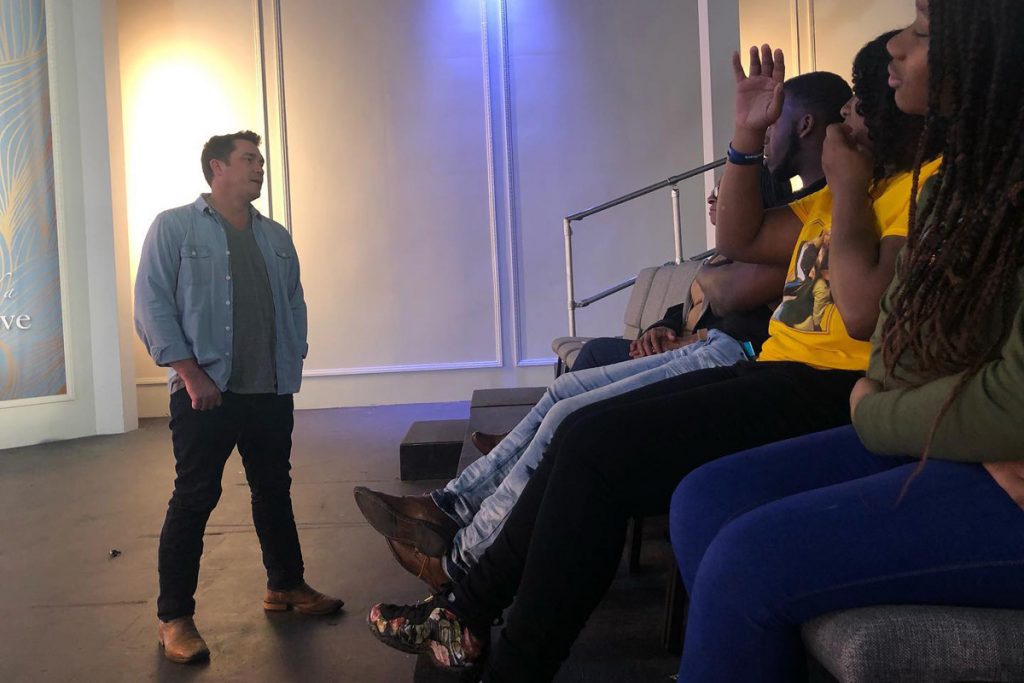
“In one particular workshop, we made a movie scene. Everything that went into making a movie scene, we did it. I got to see how long it takes to shoot one simple scene and the importance that it takes to make the scene and being on set. We were able to do a lot of things,” Jenkins said.
It took them about eight hours to work on the scene, he said, starting at 9 a.m. and working until 5 p.m. with a lunch break in between.
“It was pretty lengthy, but I enjoyed it,” he said.
Due to the pandemic, most of Film Natchez’ programming has moved online. During the weekly Q&A sessions with film professionals, people from the Philippines, Africa and other places outside the United States are on the call, Klugh said.
“At the beginning of the year, we were having field trips, we had these hands-on workshops where the students were getting to make short films with professional filmmakers, just getting to do a lot more hands-on apprenticeships and trainings,” she said.
The seminars, which used to take place in person on Saturday mornings, brought people from across the state. “High schoolers (were) showing up at 8 a.m. in Natchez from Tupelo and Biloxi, so it just shows the enthusiasm and the need for this outlet for Mississippi kids and adults,” Taylor said.
“We had people coming from all over, getting a hotel room in Natchez, just to stay and be able to take a class with people who are professionals in the industry,” Klugh added.
‘It Changes the Minds of Young People’
Tate Taylor said none of this would be possible without the Mississippi Motion Picture Incentive Program, which opens the doors for the state to host major projects. Before the pandemic, Taylor said he had four films back-to-back coming to Natchez.
“On paper, it looks like you’re helping a movie company or TV show, making it more affordable for them to come to your city and then leave, but that’s not true. They leave a lasting effect, and it changes the minds of young people,” the director added.
The benefits to the local economy can have lasting effects. Taylor said “The Help” dumped $17 million into Leflore County’s tourism market with people coming to visit the Greenwood locations in the movie. Taylor is paying it forward by investing in Natchez’ infrastructure and opening three restaurants that will serve local residents and the film business when they come, he said.
“Because film is here, an industry is now coming to a place where people would have never thought it would be possible to learn about because of personal circumstances. Now that we can bring the industry here because of the film incentives, you have this offshoot of other benefits that multiply and multiply and multiply,” he said.
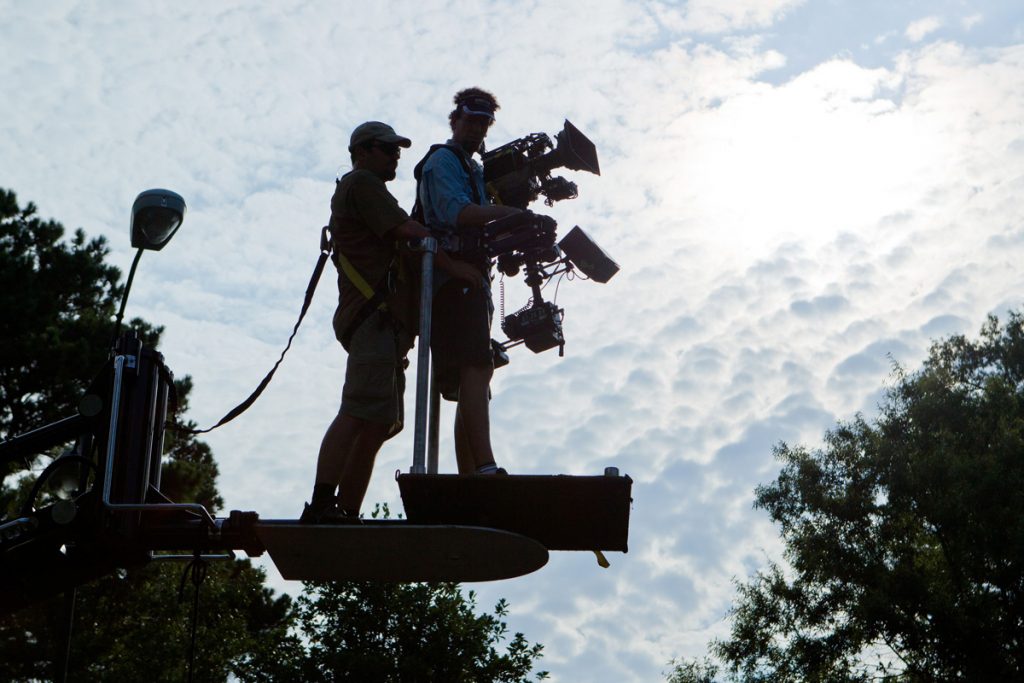
Filming locally can also imbue civic pride into a community, the director said.
“They get to see actors eating and working at the places that they go everyday,” Klugh said. “And a lot of people took off work for a couple of days to work as background extras and get to see the behind the scenes of shooting a movie here.’”
But this “civic pride” that Taylor speaks of is still fledgling, Jenkins said. He’s lived in Natchez all his life, and while he sees the potential Film Natchez can have, everybody doesn’t share those same sentiments.
“Natchez can be stubborn,” he said. “We can get very stuck in tradition. You can go look at our downtown. We got buildings that’ve been sitting there, and people can really take those buildings and do something with them, but we just let them sit there.”
Natchez has long relied economically on Old South Tourism, in a nostalgic nod to Natchez’ past filled with wealthy landowners and as a major slave-trading location, the Forks of the Road. Its Old South “pageants” romanticize the historic infrastructure and Old Confederacy period, often down to rebel uniforms and hoop skirts, despite the fact that Natchez’ population is now 63.1% African American, Data USA reports.
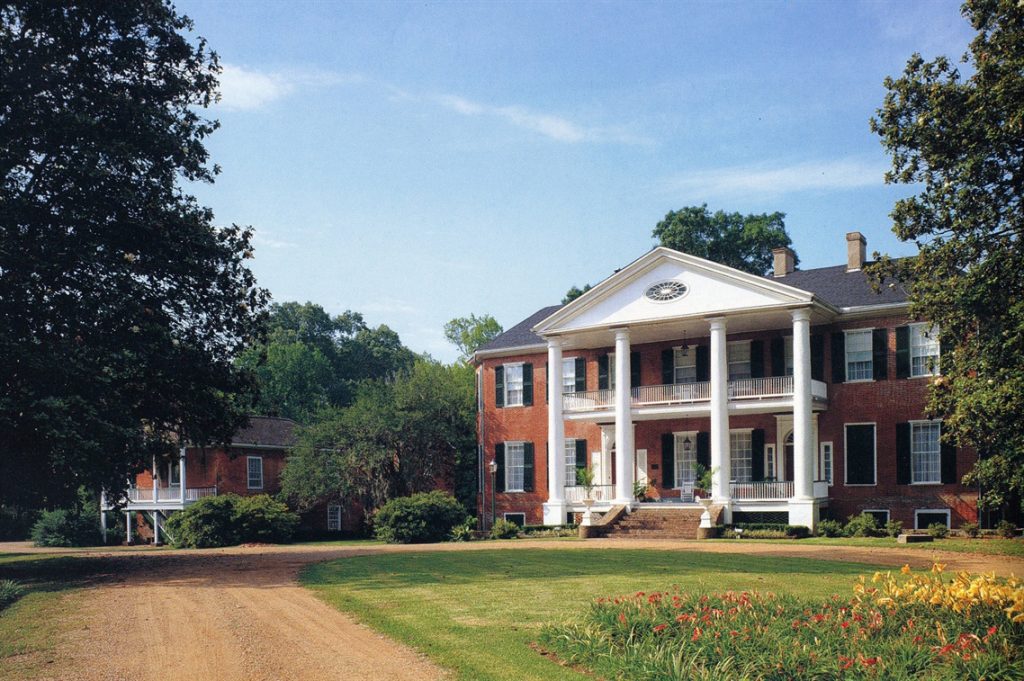
Jenkins said the city could bring in more modernity. Before Film Natchez, there was nothing for the youth of Natchez to do, he said. The internships gave them a chance to do something fun and educational with their day and branch out to new opportunities.
“If you want to do something, you have to go out here or go out there. I (would) go to work and then come home. I like to go home and watch TV, but it’s not too much to do. The only thing down here we have is a bowling alley, and it sucks, too,” Jenkins said.
But the 2020 Natchez High School graduate said he sees the community starting to come around to the idea of having Film Natchez around.
“It’s an opportunity for the community. It’s an opportunity for young people to branch out. We don’t have to go to Los Angeles. We can bring Los Angeles to us,” he said.
After graduating from Natchez High School in 2020, Jenkins enrolled in the military and just recently returned. He has plans to attend Alcorn State University in the fall and major in political science and pre-law, but he still has an interest in film.
“It opens up another type of career,” Jenkins said. “It gives people hope that maybe one day they can actually star in movies, make a living off this stuff. It brings Hollywood here. You don’t have to move to LA and be broke. It brings the movies and opportunities here, not just for Natchez itself, but Mississippi as a whole.”
‘Never Want To Leave’
The film industry has been one of many industries the pandemic has dramatically affected with movie theaters on the cusp of closing and ever-changing dates for upcoming films.
But Tate Taylor is hopeful.
“People still want to go watch a movie in a huge public experience, and there may even be couch fatigue after this, so I’m very hopeful,” he said.
Taylor and Octavia Spencer, an Alabama native actor who starred in his projects “The Help” and “Ma,” are on the cover of the Mississippi Tour Guide for 2021, which he said is a huge honor and helps his efforts with Film Natchez.
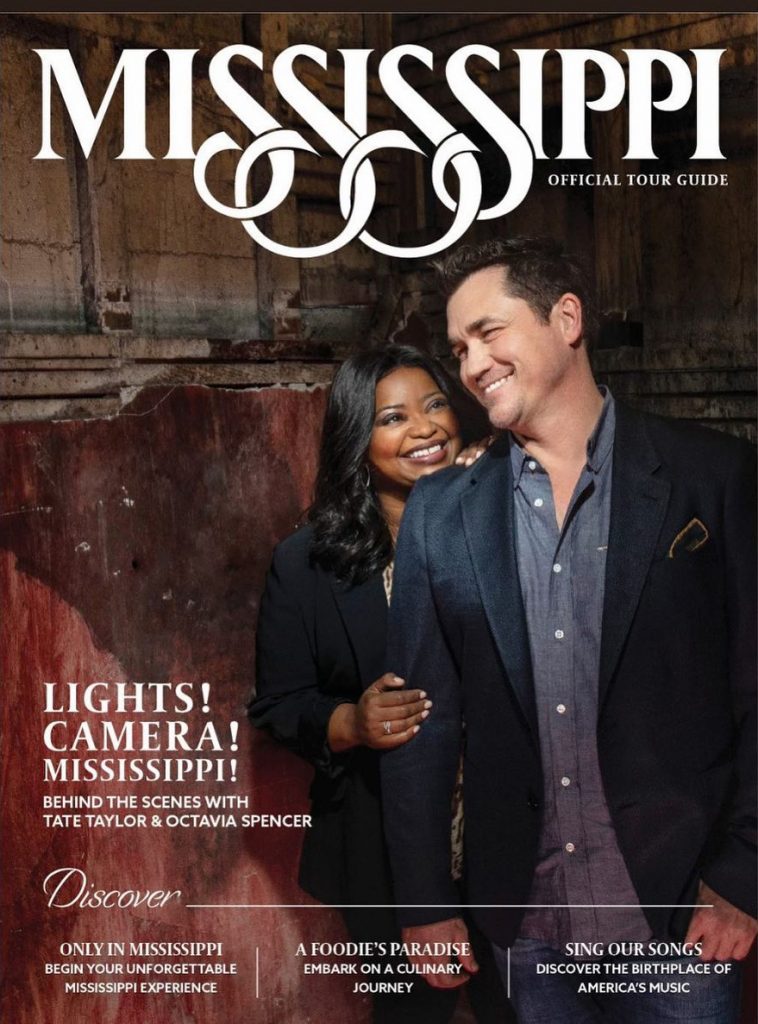
“I think it all helps. Two southern people who were not supposed to have careers, Tate and Octavia. She’s from Montgomery. To flourish down here, it sends a fun message of inclusivity, hope and potential,” he said.
Taylor said he would love to leave this earth knowing he helped bring an industry to a community and a new perception about the state.
“Mississippi gives birth to some of the greatest creative minds and artists in the world, and many of them have to leave, and I would love for them not only not to leave, but never want to,” he said.
For Devin Miranda-Weise Klugh, it’s about making opportunities possible for local students and young people to get a chance to tell their stories without having to leave the state to do it.
“I think that when they see Tate make projects here, and they realize it’s something they can do too, that is creating the legacy that we want to create,” she said.

